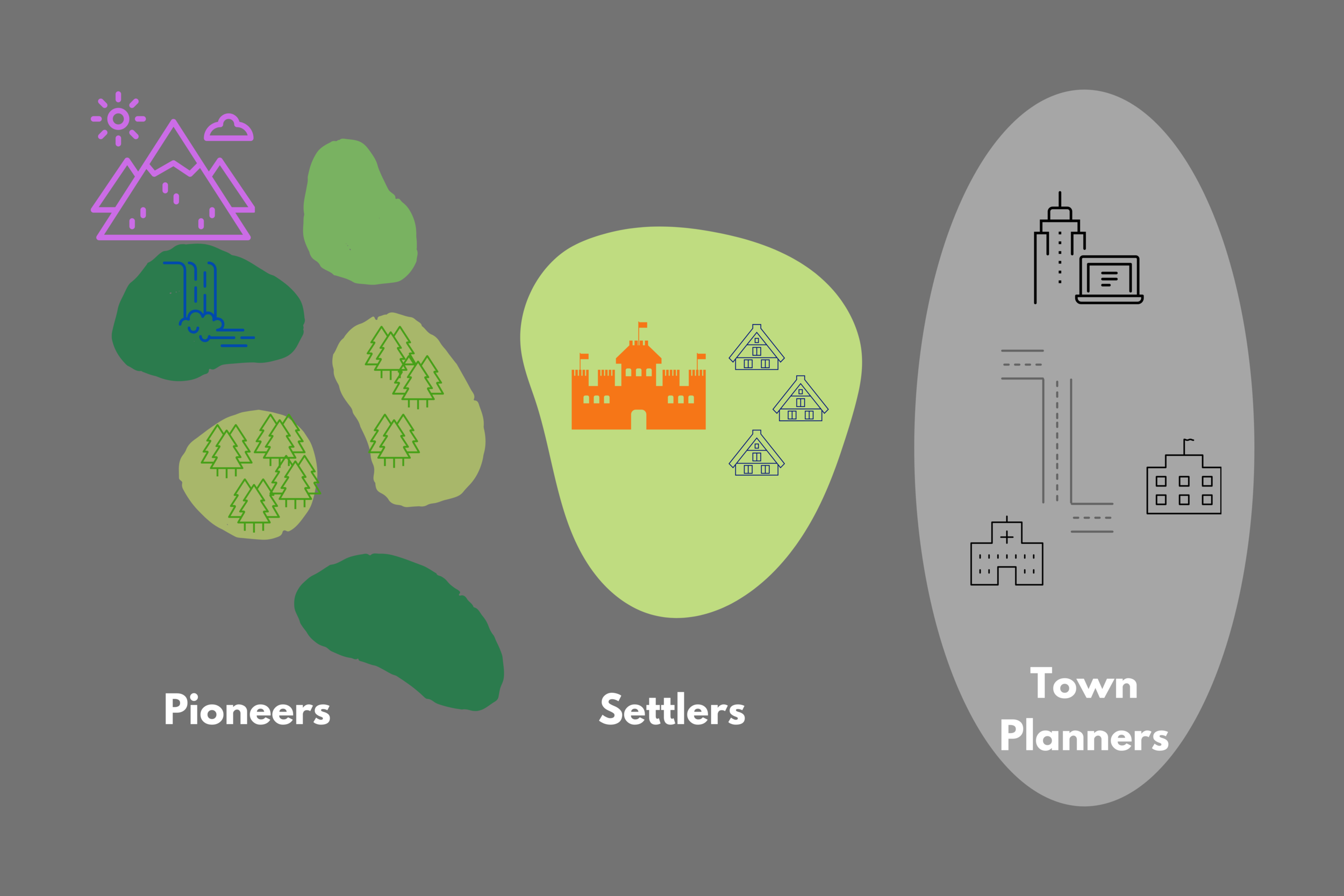Are you a Pioneer, Settler, or Town Planner?
When you consider the contexts in which you do your best work or to which you are most drawn, where do you fall on the following spectrums?
Now consider the map below. If most of your responses are on the left third of the spectrums, you’re probably a Pioneer. If you’re mostly in the middle third, you’re probably a Settler. And if you’re mostly on the right third, you’re probably a Town Planner. [1]
Pioneers love to go beyond the edge of the map. They know there is a better way to do things, so they invest their resources to discover it. We need Pioneers, because they show us the future.
Settlers convert the Pioneers’ abstract vision into a concrete product or service. We need Settlers, because they are the midwives of our future.
Town Planners live in the world of trustworthy solutions. They maintain well-oiled machines that produce reliable, predictable, impactful results. We need Town Planners because they convert the Settler’s good but imperfect product into something totally trustworthy. [2]
A healthy organization needs all three types of people. But…
For them to work well together, they need to buy into a clear:
Mission: your timeless reason for existence;
Vision: your North Star on your journey to a better future; and
Culture: your value-driven behaviors—observable actions and words—that sustain you on that journey.
After you have alignment on Mission, Vision, and Culture, everyone needs to know who they’re working with. If a Pioneer and a Town Settler are working on the same problem but don’t know each other’s primary posture, sparks will fly.
So are you a Pioneer, Settler, or Town Planner?
Do your teammates know that about you?
And do you know who your teammates are?
***
[1] This exercise was adapted from “On Pioneers, Settlers, Town Planners and Theft,” by Simon Wardley.
[2] If you’re looking for a little more nuance to these psychographics, you can map them onto the Rogers Innovation Diffusion Curve (below).
Image credit: Crossing the Chasm, by Geoffrey Moore.
Pioneers = Innovators + Early Adopters.
Settlers = Early Majority.
Town Planners = Late Majority + Laggards.
***
Thank you for reading this post from Basecamp's blog, Ed:Future. Do you know someone who would find the Ed:Future blog worthwhile reading? Please let them know that they can subscribe here.




